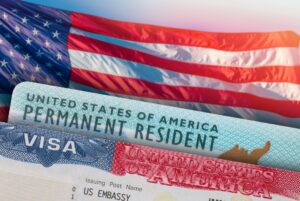At US-ILC, we listen, we care, we deliver: Let our 89 years of combined experience help you to navigate the complexities of immigration law!
On August 28, 2025, the Department of Justice’s Executive Office for Immigration Review issued a final rule regarding temporary immigration judge appointments. The new rule states that the Attorney General and EOIR can now select judges from a larger pool of “well-qualified” candidates. Temporary immigration judges previously had to be either former appellate immigration judges or EOIR judges, or immigration attorneys with at least 10 years of experience.
Now, judges will no longer need to have any immigration law experience to preside over a case. The Attorney General’s office has opened the position to lawyers authorized to practice in the United States, and once they have been accepted into the position, these lawyers will serve as temporary immigration judges for a six-month period. The EOIR has even bypassed the standard comment period that usually follows a new regulation, to ensure it will take effect immediately.
Why Was the New Ruling Issued?
Since taking office, the Trump administration has taken steps to massively increase the number of noncitizens subject to arrests and rapid removal proceedings. There are now over 4.1 million pending immigration cases making their way through the EOIR pipeline. At the same time, the administration recently terminated 100 immigration judges who had been carefully vetted based on their experience. To help ease the ever-increasing backlog, the administration has now launched a plan to appoint attorneys as temporary immigration judges.
Approximately 600 military lawyers with the National Guard have already been hired to serve as immigration judges. These judges will be given two weeks of training, after which they will have the power to approve or deny permanent resident cases, or issue final removal orders for certain noncitizens with pending deportation cases.
What Impact Will This Ruling Have on Removal Cases?
Recruiting attorneys who lack immigration law experience to serve as temporary immigration judges will likely have a negative impact on immigrants currently in the removal process.
- Temporary judges will not be well-versed in complex immigration laws, including laws related to waiver reliefs and family protections.
- They will be tasked with expediting cases to help reduce the backlog, which means hearings may be shorter and cases may not be given due process.
- Judges who lack experience will be prone to making more frequent errors.
- Advocates also believe that lawyers from nonprofit organizations and private immigration practices may be excluded, and the hirings may be politically influenced.
What Can Noncitizens Do?
Many noncitizens who have pending cases with the EOIR may still have options for adjusting their status, delaying their removal, or cancelling it altogether, if they qualify for a relief. They also still have a right to legal counsel, and the right to appeal a removal order. The best step is to seek the services of an immigration attorney with in-depth experience in removal cases.
If you are in removal proceedings, or if you have questions regarding another immigration matter, contact U.S. Immigration Law Counsel for a strategy session to discuss your case.




